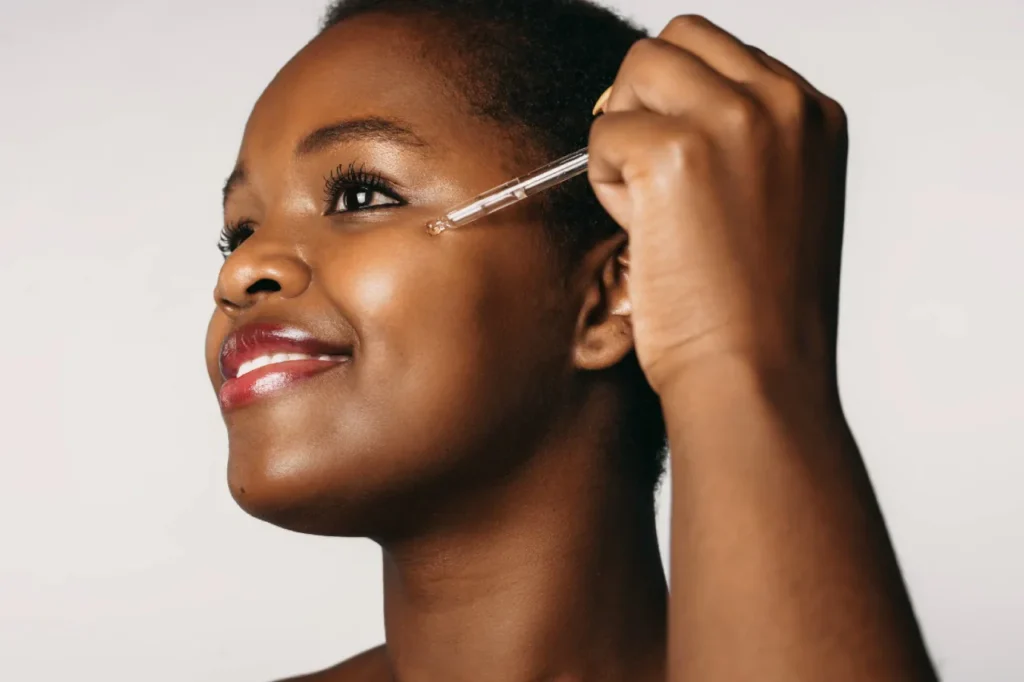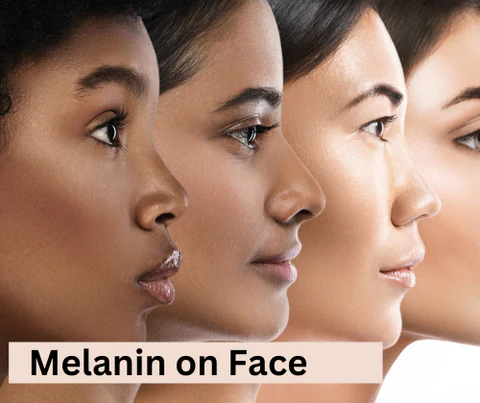If you’re wondering how to reduce melanin in skin, you’re not alone! Melanin is the natural pigment in your skin, but sometimes it can cause dark spots or uneven skin tone. Understanding how to reduce melanin in skin can help you achieve smoother, clearer skin. In this blog, we’ll explore some easy and effective ways to manage excess melanin.
Reducing melanin isn’t an overnight process, but with the right skincare routine, you can notice improvements over time. Whether it’s through sun protection or gentle skin treatments, there are many ways to help balance melanin levels. Let’s dive into some tips that can help your skin look brighter and more even.
- What is Melanin and How Does It Affect Your Skin?
- How to Reduce Melanin in Skin: Easy and Natural Ways
- The Importance of Sunscreen in Reducing Melanin in Skin
- Healthy Diet Tips to Help Reduce Melanin in Your Skin
- How Avoiding the Sun Can Help You Reduce Melanin in Skin
- Gentle Skincare Products to Help Reduce Melanin in Skin
- Laser Treatments and Procedures for Reducing Melanin in Skin
- Conclusion
- FAQs
What is Melanin and How Does It Affect Your Skin?
Melanin is the pigment that gives our skin its color. Everyone has it, but some people produce more melanin than others. This pigment is made by special skin cells called melanocytes. It helps protect your skin from the sun’s harmful rays by absorbing UV light. But when there’s too much melanin, it can cause dark spots or uneven skin tone. So, knowing how to reduce melanin in skin is important for people who want to have clearer, smoother skin.
Melanin is not bad for your skin. In fact, it plays an important role in protecting your skin from sunburn and skin cancer. However, excess melanin can cause hyperpigmentation. This happens when dark spots appear on your skin, usually after sun exposure, acne, or other skin injuries. If you’re dealing with this, learning how to reduce melanin in skin can help balance your complexion and reduce these spots.

How to Reduce Melanin in Skin: Easy and Natural Ways
To start reducing melanin, it’s essential to be gentle with your skin. Using natural remedies, like aloe vera or lemon juice, can help lighten skin over time. Aloe vera has soothing properties, while lemon juice is rich in vitamin C, which helps reduce melanin. However, make sure to use these remedies sparingly and with caution as they can be harsh if overused. Always patch test any new ingredients before applying them to your skin.
Another way to reduce melanin is to hydrate your skin properly. When your skin is hydrated, it’s healthier and can repair itself more easily. Using a good moisturizer daily will help prevent skin damage that can cause excess melanin production. Drinking water throughout the day also helps to keep your skin looking fresh and glowing. This simple step is one of the easiest ways to improve your skin’s health and reduce dark spots.
The Importance of Sunscreen in Reducing Melanin in Skin
Sunscreen is one of the best ways to reduce melanin in skin. The sun’s UV rays are one of the main reasons for increased melanin production, leading to dark spots. By using sunscreen with an SPF of at least 30, you can protect your skin from these harmful rays. Make sure to apply sunscreen every day, even on cloudy days or when you’re indoors. UV rays can penetrate through windows, so don’t skip sunscreen!
Why is Sunscreen Important?
- Protects skin from harmful UV rays
- Prevents dark spots and pigmentation
- Helps keep your skin tone even
Using sunscreen regularly helps prevent pigmentation and keeps your skin looking youthful. Remember to reapply sunscreen every two hours, especially if you’re sweating or swimming. By making this a daily habit, you can keep your skin protected and prevent excess melanin buildup.
Healthy Diet Tips to Help Reduce Melanin in Your Skin
A balanced diet is essential for healthy skin. Eating foods rich in antioxidants, like fruits and vegetables, can help reduce melanin production. Carotenoids, found in carrots, spinach, and sweet potatoes, help lighten skin and improve its overall health. Flavonoids, which are in berries, citrus fruits, and tea, also help protect your skin from damage caused by free radicals.
Foods That Help Reduce Melanin in Skin:
- Carrots and sweet potatoes (rich in carotenoids)
- Berries and citrus fruits (full of antioxidants)
- Leafy greens like spinach and kale
Including these foods in your diet regularly can help reduce melanin and improve the appearance of your skin. Remember that a healthy diet is not just about beauty—it’s about supporting your skin from the inside out.
How Avoiding the Sun Can Help You Reduce Melanin in Skin
One of the most effective ways to reduce melanin is by limiting your sun exposure. The more time you spend under the sun, the more melanin your skin produces to protect itself. It’s important to avoid the sun during peak hours, which are usually between 10 AM and 4 PM. During this time, the sun’s rays are the strongest, and exposure can lead to more pigmentation.
Tips for Sun Protection:
- Stay in the shade whenever possible
- Wear wide-brimmed hats and sunglasses
- Use an umbrella or protective clothing
By following these steps, you can reduce the amount of melanin your skin produces, keeping your complexion even and bright.
Gentle Skincare Products to Help Reduce Melanin in Skin
Using the right skincare products can make a big difference when it comes to reducing melanin. Look for products that contain ingredients like vitamin C, niacinamide, and licorice extract. These ingredients are known for their ability to lighten skin and reduce dark spots. Make sure to choose products that suit your skin type and avoid harsh chemicals that can irritate your skin.
Skincare Ingredients That Help Reduce Melanin:
- Vitamin C (brightens and evens out skin tone)
- Niacinamide (reduces dark spots and pigmentation)
- Licorice extract (lightens skin and reduces pigmentation)
By using these ingredients in your skincare routine, you can help reduce melanin production and enjoy clearer, smoother skin.
Laser Treatments and Procedures for Reducing Melanin in Skin
For those looking for more advanced options, laser treatments are a great choice. Lasers work by targeting the deeper layers of the skin to break down excess melanin. There are various types of laser treatments available, such as fractional laser and Q-switched laser, which can help reduce dark spots and pigmentation over time. It’s essential to consult a dermatologist to determine which treatment is best for your skin.
Laser treatments are highly effective, but they should only be performed by a qualified dermatologist. Make sure to follow all aftercare instructions to avoid further irritation and sun exposure. With the right care, you can see significant improvements in your skin’s appearance.

Conclusion
Reducing melanin in your skin doesn’t have to be difficult. By using simple, natural remedies, protecting your skin from the sun, and eating a healthy diet, you can achieve a brighter and more even complexion. Remember that it takes time, and consistency is key. With a little patience and care, you can see improvements in your skin’s appearance.
If you want to speed up the process, consider incorporating professional treatments like laser therapy or medifacials. These options can help you achieve faster and more noticeable results. Always consult with a dermatologist to find the best solution for your skin type and needs.
FAQs
Q: Can sunscreen reduce melanin in my skin?
A: Yes, sunscreen helps prevent UV rays from increasing melanin production and causing dark spots. It’s important to use sunscreen every day.
Q: Does vitamin C lighten skin?
A: Yes, vitamin C is known for its ability to brighten skin and reduce melanin. It helps to even out skin tone and fade dark spots.
Q: Are natural remedies like lemon juice effective in reducing melanin?
A: Lemon juice contains vitamin C, which can lighten skin, but it can also be harsh. Always do a patch test before using it.
Q: How long does it take to reduce melanin in skin?
A: It can take weeks or months to see results, depending on your skincare routine and treatment methods.